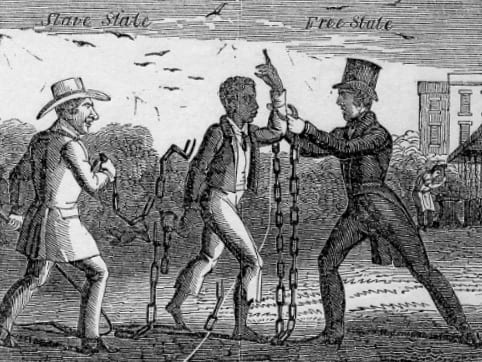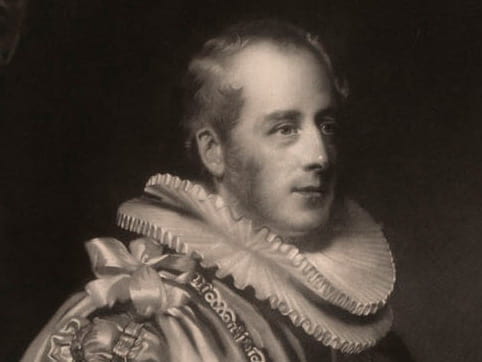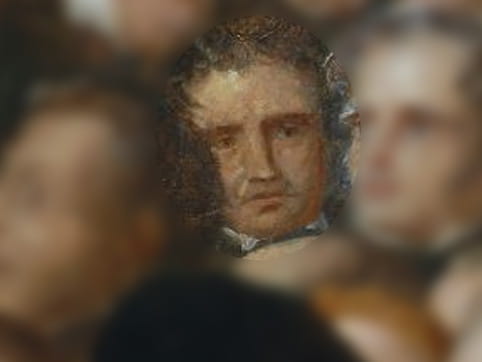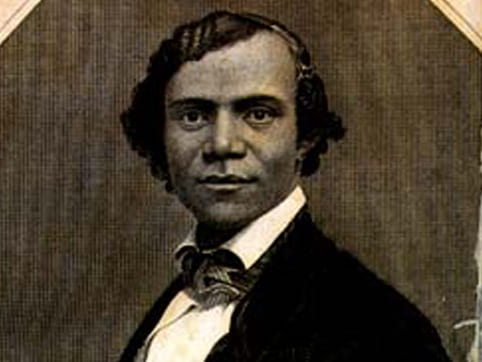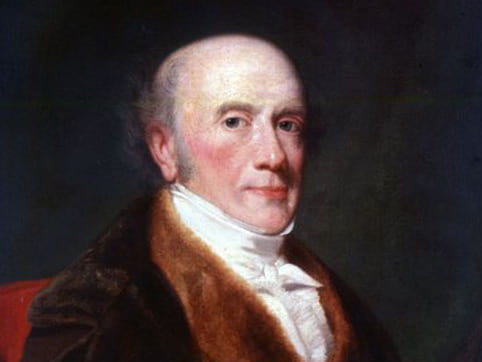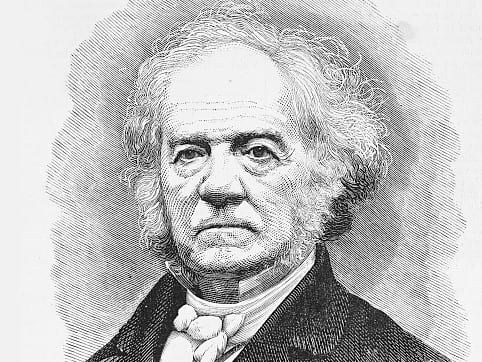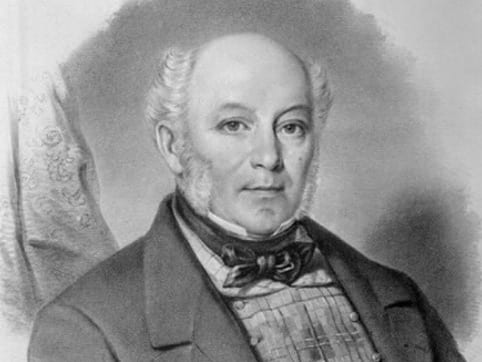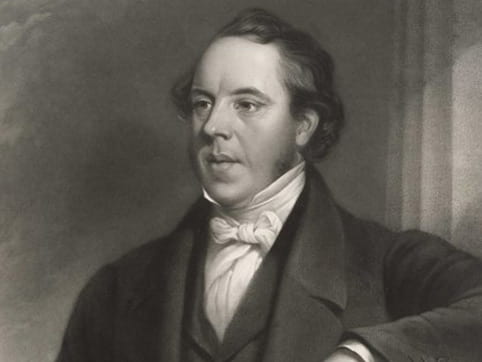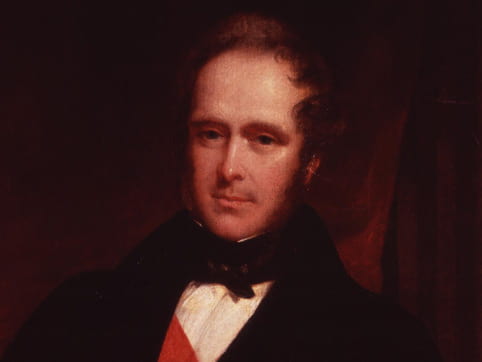The Main Players
Nelson Hackett
An escaped slave who fled to Canada only to be captured and brought back to Arkansas.
Alfred Wallace
The man who claimed to own Nelson Hackett and accused him of stealing a race horse, saddle, coat, 100 £ ($500) in silver and gold coin, and a watch.
Sir Charles Bagot
Soon after assuming office, Governor General Sir Charles Bagot made the decision to send Nelson Hackett back to Arkansas on charges of theft.
Charles Stewart
Abolitionist and attorney who had been one of the founding officers of the Detroit Anti-Slavery Society and who interviewed Nelson Hackett when he was held in Detroit.
Henry Bibb
Henry Bibb, one of the leaders of Detroit’s Colored Vigilant Committee, helped mobilize support for Nelson Hackett.
Hiram Wilson
Hiram Wilson an abolitionist and an American Reverend ministering to Toronto’s fugitive population who visited Hackett at Sandwich.
Daniel Webster
As United States secretary of state, Daniel Webster negotiated the Webster-Ashburton Treaty in 1842.
Lewis Tappan
Lewis Tappan led the American abolitionist effort to amend the Webster-Ashburton Treaty.
Sir Allan Napier MacNab
Sir Allan Napier MacNab presented “Address of the Colored People of Hamilton,” which protested Nelson Hackett’s return to Arkansas, to Queen Victoria and Prince Albert.
Thomas Clarkson
Thomas Clarkson fought to abolish slavery in the British Empire and the international slave trade before turning his attention to Nelson Hackett and the Webster-Ashburton Treaty.
Viscount Palmerston
Viscount Palmerston led the effort in the House of Commons to amend the Webster-Ashburton Treaty to protect fugitives from slavery from extradition.
A | B | C | D | E | G | H | J | L | M | N | P | S | T | W | Y
Alfred W. Arrington: A Fayetteville minister-turned-lawyer who penned the most detailed description of the Wallace brothers and provided an account of the “Fayetteville War”; wrote under the pseudonym Charles Summerfield.
Lord Ashburton: British diplomat who negotiated Webster-Ashburton Treaty.
Mr. Baby: Nelson Hackett’s attorney in Sandwich, Canada West.
Charles Bagot: Governor General of United Province of Canada, who approved the extradition of Nelson Hackett.
Robert Banks: Leader, Detroit’s Colored Vigilant Committee.
Henry Bibb: Leader, Detroit’s Colored Vigilant Committee.
Jacob Cartwright: Fayetteville slave owner who traded Nelson Hackett to Willis Wallace in 1840.
Thomas Clarkson: British abolitionist who fought to abolish the international slave trade before lobbying Parliament to amend Article 10 of the Webster-Ashburton Treaty.
Edward Cross: Represented Arkansas in the U.S. House of Representatives.
Louis Davenport: Michigan resident who was authorized by the Arkansas Governor to take possession of Nelson Hackett and transport him to Detroit and then Fayetteville.
Richard Eells: Quincy, Illinois, abolitionist arrested for helping a Missouri fugitive who swam across the river. Nelson Hackett possibly visited his house.
Onesimus Evans: Fayetteville resident from whom Nelson Hackett allegedly stole a watch and a man who helped transport Nelson Hackett from Detroit back to Arkansas.
Samuel Gardiner: Justice of the Peace, Chatham, Canada West.
William Lloyd Garrison: Editor of The Liberator, abolitionist newspaper.
James Wright Gordan: Acting Governor, Michigan.
George Grigg: Fayetteville man dispatched to track Nelson Hackett after he fled Arkansas.
Nelson Hackett: An enslaved man who fled from Fayetteville, setting off an international dispute.
Joseph M. Hoge: Circuit Court Judge, Washington County, Arkansas.
Richard Jackson: Governor-General, United Province of Canada.
Joshua Leavitt: Abolitionist, associate of Lewis Tappan.
Owen Lovejoy: Abolitionist who operated a portion of the Underground Railroad in Princeton, Illinois. Future congressman.
Allan Napier MacNab: Member of the Canadian Assembly who presented “Address of the Colored People of Hamilton” to Queen Elizabeth and Prince Albert.
Thomas M’Crea: Justice of the Peace, Chatham.
John Mercer: Sandwich deputy-sheriff who surrendered Nelson Hackett to Louis Davenport.
William Monroe: Leader, Detroit’s Colored Vigilant Committee.
William Murdock: An enslaved man, who escaped from Alfred Wallace to Canada and gave a detailed account of Nelson Hackett’s return to Fayetteville.
David Nelson: A minister, one-time slave holder, and agent for the American Anti-Slavery Society, who was at the center of abolitionist activity in Quincy, Illinois, and Marion City, Missouri.
Viscount Palmerston: Leader of the forces in the House of Commons attempting to amend Article 10 of the Webster-Ashburton Treaty to prevent a recurrence of the Hackett episode.
H. Pierson: Clerk and Ex-officio Recorder, Washington County, Arkansas.
John Scoble: British abolitionist and editor of the British and Foreign Anti-Slavery Reporter.
Gerrit Smith: American abolitionist who met with Lord Ashburton.
Lord Stanley: British secretary of state for war and the colonies.
Charles Stewart: Detroit abolitionist and lawyer who worked closely with Colored Vigilant Committee.
Charles Stuart: Anglo-Canadian abolitionist who cited Hackett’s case while lobbying Parliament concerning Article 10 of the Webster-Ashburton Treaty.
Arthur Tappan: American abolitionist and brother of Lewis Tappan.
Lewis Tappan: American abolitionist who lobbied against Article 10 of the Webster-Ashburton Treaty and inquired about Hackett’s status after his return to Fayetteville.
Charles Poulett Thompson: Governor General of the United Province of Canada who died before making a decision about Nelson Hackett.
Alfred Wallace: The Fayetteville man who claimed ownership of Nelson Hackett, tracked him to Canada, and extradited him on charges of theft.
Willis Wallace: Alfred Wallace’s brother and Fayetteville slave owner.
Daniel Webster: U.S. secretary of state who negotiated Webster-Ashburton Treaty.
M. Wilson: Circuit Court Judge, Washington County, Arkansas.
Hiram Wilson: American abolitionist ministering to fugitives in Canada, who visited Hackett in the Sandwich Gaol and interviewed William Murdock.
Archibald Yell: Governor of Arkansas who extradited Nelson Hackett from to stand charges of theft.
